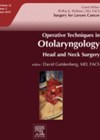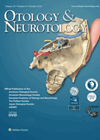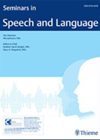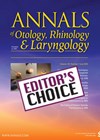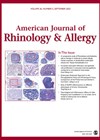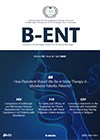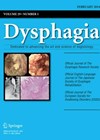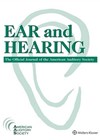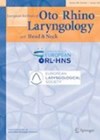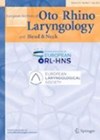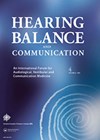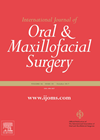
Journal Reviews
Transoral laser microsurgery (TLM)
This review article describes the surgical technique of transoral laser microsurgery (TLM) for the piecemeal removal of tumours of the upper aerodigestive tract using carbon dioxide laser. This technique gained acceptance after Wolfgang Steiner published his paper on the treatment...
Cochlear implantation in inner ear schwannoma patients
Inner ear schwannomas (IES) are rare. Patients with IES tend to lose their hearing. Surgery is a treatment option, but it leads to complete loss of hearing. Other treatment options include stereotactic radiosurgery (SRS) and watchful waiting (WW). The authors...
Four lessons: the development of speech and language therapy research for people with dementia care
Dementia has been described as the biggest expanded caseload for speech and language therapists. Everyone with dementia experiences communication difficulties. The late Prof Audrey Holland revolutionised the work of speech-language pathologists in this field through four key lessons. Lesson 1:...
Poking the bear: learning to drain quinsy on a mannequin head
Simulation in medicine has gained significant traction in both undergraduate and postgraduate training over the last couple of decades or so – the benefits to all involved are clear. The airline industry models for human factors and crew resource management...
Early DCR may be better than delayed in acute dacrocystitis?
Traditionally, acute dacrocystitis has been treated conservatively with antibiotics, analgesia and warm compresses, with surgery reserved for later when the infection has subsided. This meta-analysis looks at early vs. late endonasal dacrocystorhinostomy (DCR) in the treatment of acute dacrocystitis, looking...
Systemic steroids for sensorineural hearing loss
This Japanese retrospective study looked at whether the dosage of prednisolone affects the response rate in patients with idiopathic sudden sensorineural hearing loss. The authors included a total of 159 patients over a 14-year period who were treated with 200mg/day...
Reducing pulse rate in videofluoroscopy: less is not best!
Recently, there has been increasing discussion in clinical meetings about the use of ionising radiation in swallowing assessments and the associated cancer risks. This is therefore a timely publication to inform discussions around whether reducing pulse rate from 30 pulses...
Are individuals with vestibular vertigo accessing healthcare more frequently?
Vestibular vertigo is estimated to have an adult lifetime prevalence of 7.4%. Vestibular dysfunction has been linked to physical, cognitive, and psychiatric impairments. There is, therefore, a large economic burden and healthcare usage. Patients with vestibular vertigo are more likely...
mAXIS stapes prosthesis
Since Shea’s first description of stapes mobilisation procedure, improvements in the technique have resulted in the development of alloplastic stapes prosthesis. The authors prospectively conducted a single-centre study to determine the safety and efficacy of the MED-EL mAXIS stapes prosthesis...
Idiopathic sudden sensorineural hearing loss and vertigo
This prospective longitudinal study evaluated vestibular function inpatients with idiopathic sudden sensorineural hearing loss (ISSHL) using caloric and video head impulse tests. All patients were admitted for treatment of their ISSHL and divided into two cohorts depending on presence or...
Tympanometry with cochlear implants
Multifrequency and multicomponent tympanometry enables evaluation of minute changes in the middle ear system as well as changes in resonant frequency. Change in resonant frequency would indicate a change in the natural characteristics of the middle ear, such as mass...
Volume changes in hemiglossectomy reconstruction
This paper analyses the volume changes in 10 patients, five of whom had hemiglossectomy reconstruction with a radial forearm free flap, whilst the other five patients had reconstruction with an anterolateral thigh flap. Both groups underwent postoperative radiotherapy. The volume...

